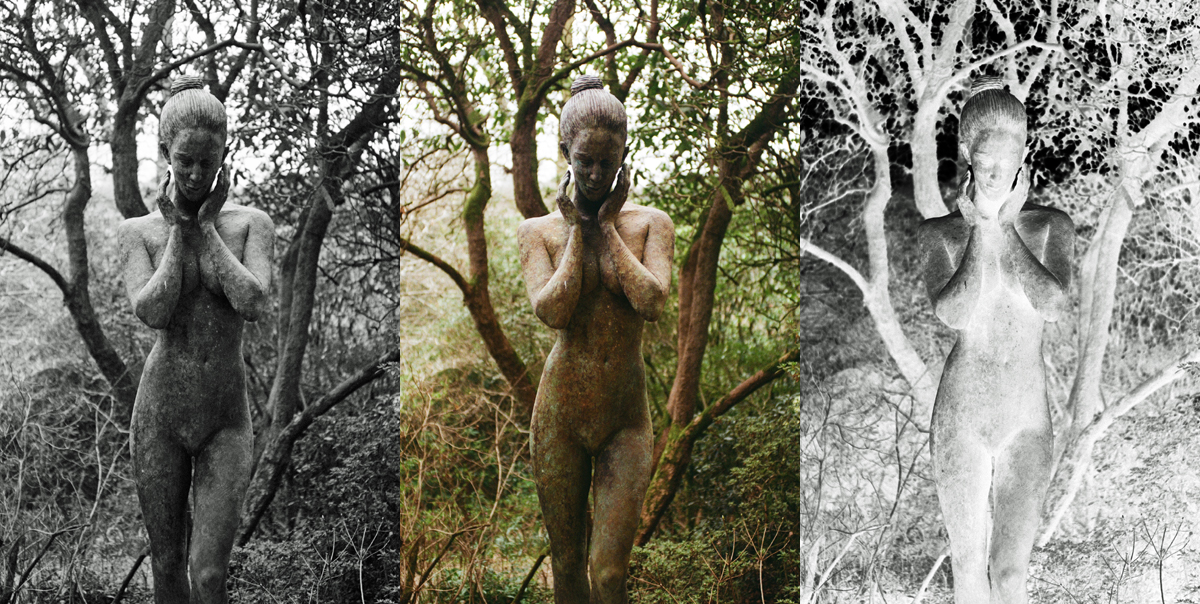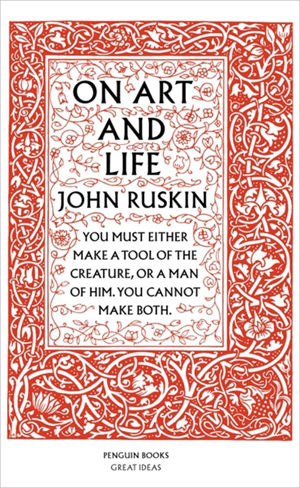
The work of iron
“iron rusted is Living;
but when pure or polished, Dead”
JOHN RUSKIN (8th February 1819–20th January 1900) was a visionary art critic, social thinker and moral philosopher whose writings bridged the worlds of beauty, nature and ethical responsibility. Deeply moved by the sacredness he perceived in art and the natural world, Ruskin championed the integrity of craftsmanship and the spiritual dimension of honest labour. From his early work on the artist J.M.W. Turner and the Gothic revival to his later calls for social reform, he tirelessly opposed the dehumanizing effects of industrialization, believing that a society divorced from truth, beauty and nature would lose its soul. His legacy is one of profound moral insight, urging us to see with both clarity and compassion in our dealings with the everyday world.
In The Work of Iron, in Nature, Art and Policy, delivered as a lecture at Tunbridge Wells on 16th February 1858, Ruskin contemplates one of the most enduring and elemental substances of human civilization—not in terms of its industrial utility but as a living presence embedded in our natural environment. For Ruskin, iron is not merely ore or artefact; it is a spiritual medium, shaped and reshaped by the forces of nature, the weather and human endeavour. His reflections invite us to see beyond the polished gleam of artifice to the quiet dignity of rust, corrosion and the slow, sacred work of time.
Indeed, far from being a mark of decay, rust on iron (also green rust on rare occasion, formed where there is moisture and lack of oxygen) becomes for Ruskin a symbol of life itself—a sign that the metal breathes within a wider ecology of transformation. Iron, when left to the elements of the weather, speaks of an inevitable process and symbiotic relationship with the air, rain and very earth from which it came. In this way, Ruskin spiritualizes the material, showing us that what we discard as ruined or imperfect is, in fact, participating in the same cycles of growth and return that govern the entire ecological realm.
IRON IN NATURE.—You all probably know that the ochreous stain, which, perhaps, is often thought to spoil the basin of your spring, is iron in a state of rust: and when you see rusty iron in other places you generally think, not only that it spoils the places it stains, but that it is spoiled itself—that rusty iron is spoiled iron.
For most of our uses it generally is so; and because we cannot use a rusty knife or razor so well as a polished one, we suppose it to be a great defect in iron that it is subject to rust. But not at all. On the contrary, the most perfect and useful state of it is that ochreous stain; and therefore it is endowed with so ready a disposition to get itself into that state. It is not a fault in the iron, but a virtue, to be so fond of getting rusted, for in that condition it fulfils its most important functions in the universe, and most kindly duties to mankind. Nay, in a certain sense, and almost a literal one, we may say that iron rusted is Living; but when pure or polished, Dead.
You all probably know that in the mixed air we breathe, the part of it essentially needful to us is called oxygen; and that this substance is to all animals, in the most accurate sense of the word, ‘breath of life’. The nervous power of life is a different thing; but the supporting element of the breath, without which the blood, and therefore the life, cannot be nourished, is this oxygen. Now it is this very same air which the iron breathes when it gets rusty. It takes the oxygen from the atmosphere as eagerly as we do, though it uses it differently. The iron keeps all that it gets; we, and other animals, part with it again; but the metal absolutely keeps what it has once received of this aërial gift; and the ochreous dust which we so much despise is, in fact, just so much nobler than pure iron, in so far as it is iron and the air.
Nobler, and more useful—for, indeed, as I shall be able to show you presently—the main service of this metal, and of all other metals, to us, is not in making knives, and scissors, and pokers, and pans, but in making the ground we feed from, and nearly all the substances first needful to our existence. For these are all nothing but metals and oxygen—metals with breath put into them. Sand, lime, clay, and the rest of the earths—potash and soda, and the rest of the alkalies—are all of them metals which have undergone this, so to speak, vital change, and have been rendered fit for the service of man by permanent unity with the purest air which he himself breathes.
Post Notes
- Feature image: © Paula Marvelly, Leonardslee
- Leonardslee Lakes & Gardens
- Brantwood, The Historic Home of John Ruskin
- Robert Louis Stevenson: An Apology for Idlers
- Henry David Thoreau: Walking
- Hannah Peschar Sculpture Garden & Zen Master Ryokan
- Antony Gormley: Sculpted Space Within and Without
- Matsuo Bashō: Deep Silence
- Matsuo Bashō: The Narrow Road to the Deep North
- Ralph Waldo Emerson: Nature
- Wassily Kandinsky: Concerning the Spiritual in Art
- Rollo May: My Quest for Beauty
- Alan Watts: Cloud-Hidden, Whereabouts Unknown
- Jack Kerouac: Alone on a Mountaintop
- The Culturium uses affiliate marketing links via the Amazon Associates Programme

